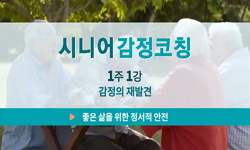본 연구의 목적은 내현적 자기애 성향이 우울에 미치는 영향에 있어서 부정적 평가에 대한 두려움, 사회적 지지, 소극적 대처 방식에 대한 이론적 모형을 검증하는 것이다. 이를 위해 대학생...
http://chineseinput.net/에서 pinyin(병음)방식으로 중국어를 변환할 수 있습니다.
변환된 중국어를 복사하여 사용하시면 됩니다.
- 中文 을 입력하시려면 zhongwen을 입력하시고 space를누르시면됩니다.
- 北京 을 입력하시려면 beijing을 입력하시고 space를 누르시면 됩니다.

내현적 자기애의 부정적 평가에 대한 두려움, 소극적 대처와 지각된 사회적 지지가 우울에 미치는 영향 = The effects of fear of negative evaluation, passive coping style and perceived social support on depression of covert narcissism
한글로보기https://www.riss.kr/link?id=A104558875
- 저자
- 발행기관
- 학술지명
- 권호사항
-
발행연도
2012
-
작성언어
Korean
- 주제어
-
등재정보
KCI등재
-
자료형태
학술저널
- 발행기관 URL
-
수록면
161-181(21쪽)
-
KCI 피인용횟수
25
- 제공처
- 소장기관
-
0
상세조회 -
0
다운로드
부가정보
국문 초록 (Abstract)
본 연구의 목적은 내현적 자기애 성향이 우울에 미치는 영향에 있어서 부정적 평가에 대한 두려움, 사회적 지지, 소극적 대처 방식에 대한 이론적 모형을 검증하는 것이다. 이를 위해 대학생 433명(남 154명, 여 289명)을 대상으로 내현적 자기애 척도, 부정적 평가에 대한 두려움 척도, 지각된 사회적 지지 척도, 대처 방식 척도, 우울을 측정하는 설문을 실시하였고 자료는 구조방정식모형을 이용하여 분석하였다. 연구결과 먼저, 내현적 자기애가 부정적 평가에 대한 두려움을 거쳐 소극적 대처를 매개로 우울로 가는 경로가 유의하였고, 내현적 자기애가 지각된 사회적 지지를 거쳐 우울로 가는 경로도 유의하였다. 본 연구를 통해 실제 치료 장면과 상담 장면에서 외현적 자기애와 달리 우울과 같은 심리적 부적응을 더욱 많이 호소하는 내현적 자기애자에 대한 이해를 돕고, 심리치료프로그램의 개발에도 도움이 될 것으로 본다.
다국어 초록 (Multilingual Abstract)
The objective of this study is to verify the theoretic model of the fear of negative evaluation, passive coping style and perceived social support on depression towards the relationship between covert narcissism and depression. To assess this hypothes...
The objective of this study is to verify the theoretic model of the fear of negative evaluation, passive coping style and perceived social support on depression towards the relationship between covert narcissism and depression. To assess this hypothesis, survey data were drawn from anonymous 443 undergraduate students. They were asked to complete the questionnaire about the Covert Narcissism Scale(CNS), the Fear of Negative Evaluation(FNE), Korean Beck Depression Inventory(KBDI), The Way of Coping Checklist(TWCC) and perceived social support scale. The data were analyzed using a Structural Equation Modeling(SEM). The analysis result reveals that the fear of negative evaluation and passive coping style mediates the relationship between covert narcissistic personality and depression. Results also show that perceived social support partially mediates the relationship between covert narcissistic personality and depression. The implication of this study is to provide the therapist with fundamental data, so that they can practically utilize them upon the clinical or counseling setting with better understanding on the depression of covert narcissist. It can be also implemented to develop useful treatment programs.
참고문헌 (Reference)
1 이정윤, "한국판 사회공포증 척도(K-SAD, K-FNE)의 신뢰도 및 타당도 연구" 16 (16): 251-264, 1996
2 윤소연, "자신이 지각한 부모와의 관계가 지각된 사회적 지지에 미치는 영향 : 인지적 성격변인을 중심으로" 延世大學校 大學院 1993
3 권영란, "자기애적 성향자의 대인관계와 우울에 관한 연구 : 기혼 여성을 중심으로" 연세대학교 교육대학원 2002
4 한수정, "자기애적 성격 성향자의 외현적·내현적 자기관련 인지특성" 서울大學校 大學院 1999
5 이원희, "자기애와 완벽주의, 적대감 및 자기효능감의 관계" 고려대학교 대학원 2001
6 강연우, "자기애와 방어유형 및 대인관계 특성의 관계" 가톨릭대학교 대학원 2004
7 박혜진, "자기애, 자기효능감, 자의식 및 우울간의 관계" 아주대학교 대학원 2003
8 박세란, "외현적·내현적 자기애의 자기평가와 정서 특성" 한국임상심리학회 24 (24): 255-266, 2005
9 박세란, "외현적·내현적 자기애의 자기평가와 귀인양식" 서울대학교 대학원 2003
10 박세란, "외현적·내현적 자기애의 명시적·간접적 귀인양식" 한국임상심리학회 24 (24): 465-474, 2005
1 이정윤, "한국판 사회공포증 척도(K-SAD, K-FNE)의 신뢰도 및 타당도 연구" 16 (16): 251-264, 1996
2 윤소연, "자신이 지각한 부모와의 관계가 지각된 사회적 지지에 미치는 영향 : 인지적 성격변인을 중심으로" 延世大學校 大學院 1993
3 권영란, "자기애적 성향자의 대인관계와 우울에 관한 연구 : 기혼 여성을 중심으로" 연세대학교 교육대학원 2002
4 한수정, "자기애적 성격 성향자의 외현적·내현적 자기관련 인지특성" 서울大學校 大學院 1999
5 이원희, "자기애와 완벽주의, 적대감 및 자기효능감의 관계" 고려대학교 대학원 2001
6 강연우, "자기애와 방어유형 및 대인관계 특성의 관계" 가톨릭대학교 대학원 2004
7 박혜진, "자기애, 자기효능감, 자의식 및 우울간의 관계" 아주대학교 대학원 2003
8 박세란, "외현적·내현적 자기애의 자기평가와 정서 특성" 한국임상심리학회 24 (24): 255-266, 2005
9 박세란, "외현적·내현적 자기애의 자기평가와 귀인양식" 서울대학교 대학원 2003
10 박세란, "외현적·내현적 자기애의 명시적·간접적 귀인양식" 한국임상심리학회 24 (24): 465-474, 2005
11 이지원, "외현․내현적 자기애 그리고 자기고양동기가 우울에 미치는 영향에 대한 종단 연구" 한국임상심리학회 30 (30): 441-458, 2011
12 朴宣永, "스트레스 상황에서 인지적 평가와 대처행동이 적응에 미치는 영향" 梨花女子大學校 大學院 1993
13 김지온, "대학생의 애착유형에 따른 사회적지지 지각 및 사회적 문제해결능력" 단국대학교 교육대학원 2003
14 이준득, "내현적·외현적 자기애 성향자의 분노특성" 서울대학교 대학원 2005
15 백승혜, "내현적, 외현적 자기애성향자의 적대감, 분노경험수준 및 분노표현양식" 한국임상심리학회 27 (27): 1001-1017, 2008
16 강선희, "내현적 자기애 척도의 개발 및 타당화 연구" 한국상담심리학회 14 (14): 705-723, 2002
17 홍세희, "구조 방정식 모형의 적합도 지수 선정기준과 그 근거" 19 (19): 161-177, 2000
18 정남운, "과민성 자기애 척도 타당화 연구" 13 (13): 193-216, 2001
19 Morf, C. C., "Unraveling the paradoxes of Narcissism : A dynamic self-regulatory processing model" 12 (12): 177-196, 2001
20 Wink, P., "Two Faces of narcissism" 61 (61): 590-597, 1991
21 Kraus, G., "The"A-B-C's"of the cluster B's : Identifying, understanding, and treating cluster B personality disorder" 21 : 345-373, 2001
22 Kohut, H., "The restoration of the self" International Universities Press 1977
23 Lazarus, R. S., "Stress, appraisal and coping" Springer Publishing Company 1984
24 Turner, R. J., "Social support as a contingency in psychological well-being" 22 : 357-367, 1981
25 Sarason, I. G., "Social support and interactional processes: A triadic hypothesis" 7 : 495-506, 1990
26 Sarason, B. R., "Perceived social support and working models of self and actual others" 60 : 273-287, 1991
27 Akhtar, S., "Overview : Narcissistic Personality disorder" 139 : 12-20, 1982
28 Hickman, S. E., "Optimism, pessimism, and complexity of narcissism" 20 : 521-525, 1996
29 Gersten, S. P., "Narcissistic personality disorder consists of two distinct subtypes" 8 : 25-26, 1991
30 Cooper, A. M., "Narcissistic Personality Disorder, In American Psychiatric press review of psychiatry, 11" American Psychiatric Press 80-97, 1992
31 Watson, P. J., "Narcissism and depression : MMPI-2 evidence for the continuum hypothesis in clinical samples" 79 : 85-109, 2002
32 Watson, D., "Measurement of social-evaluative anxiety" 33 : 448-457, 1969
33 Carroll, L., "Interpersonal consequences of narcissism" 79 : 1267-1272, 1996
34 Emmons, R. A., "Emotional conflict and well-being : Relation to perceived availability, daily utilization and observer reports of social support" 68 : 947-959, 1995
35 Billings, A. G., "Difficulty of follow-up and posttreatment functioning among depressed patients" 8 : 9-16, 1985
36 American Psychiatric Association, "Diagnostic and Statistical Manual of Mental Disorders" American Psychiatric Association 1994
37 David, G., "Depression and grandiosity: Clinical and theoretical issues in the treatment of narcissistic disturbances" 24 : 203-211, 1994
38 Moos, R. H., "Conceptualizing and measuring coping resources and process, In Handbook of stress: Theoretical and clinical aspects" Free Press 212-230, 1982
39 Kernberg, O. F., "Borderline conditions and pathological narcissism" Aronson 1975
40 Parker, J, D, A., "Assessment of multidimensional coping: Task, emotion, and avoidance strategies" 6 : 50-60, 1994
41 Hendin, H. M., "Assessing hypersensitivity narcissism : A reexamination of Murray's Narcism Scale" 31 : 588-599, 1997
42 Rathvon, N., "An MMPI-2 portrait of narcissism" 66 (66): 1-19, 1996
43 Beck, A. T., "An Inventory for measuring depression" 4 : 561-571, 1961
동일학술지(권/호) 다른 논문
-
- 한국청소년학회
- 손병덕
- 2012
- KCI등재
-
- 한국청소년학회
- 김경화
- 2012
- KCI등재
-
중학생이 지각한 부모의 양육태도와 자기결정성 학습동기 간의 관계 : 정서경험의 매개효과를 중심으로
- 한국청소년학회
- 조한익
- 2012
- KCI등재
-
청소년의 부적 정동과 학교적응과의 관계에서 강인성과 낙관성의 효과
- 한국청소년학회
- 김청송
- 2012
- KCI등재
분석정보
인용정보 인용지수 설명보기
학술지 이력
| 연월일 | 이력구분 | 이력상세 | 등재구분 |
|---|---|---|---|
| 2027 | 평가예정 | 재인증평가 신청대상 (재인증) | |
| 2021-01-01 | 평가 | 등재학술지 유지 (재인증) |  |
| 2018-01-01 | 평가 | 등재학술지 유지 (등재유지) |  |
| 2015-01-01 | 평가 | 등재학술지 유지 (등재유지) |  |
| 2011-01-01 | 평가 | 등재학술지 유지 (등재유지) |  |
| 2009-01-01 | 평가 | 등재학술지 유지 (등재유지) |  |
| 2006-01-01 | 평가 | 등재학술지 선정 (등재후보2차) |  |
| 2005-01-01 | 평가 | 등재후보 1차 PASS (등재후보1차) |  |
| 2004-01-01 | 평가 | 등재후보 1차 FAIL (등재후보1차) |  |
| 2003-01-01 | 평가 | 등재후보학술지 유지 (등재후보1차) |  |
| 2002-01-01 | 평가 | 등재후보 1차 FAIL (등재후보1차) |  |
| 1999-07-01 | 평가 | 등재후보학술지 선정 (신규평가) |  |
학술지 인용정보
| 기준연도 | WOS-KCI 통합IF(2년) | KCIF(2년) | KCIF(3년) |
|---|---|---|---|
| 2016 | 2.14 | 2.14 | 2.17 |
| KCIF(4년) | KCIF(5년) | 중심성지수(3년) | 즉시성지수 |
| 2.34 | 2.47 | 2.766 | 0.54 |




 KISS
KISS







